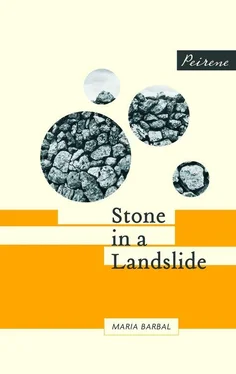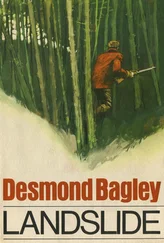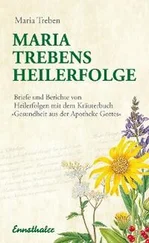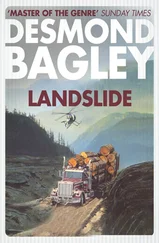My father was more talkative, and sometimes he’d say mean things that if you thought them over alone, hurt a bit. On the other hand, he often played with us and put us on his knee and told us stories, most of all in winter when the fire drew us all together after a dinner of vegetables and — when there was some — a sliver of bacon. I remember how we laughed at the story of the old man from Montenar who took the underpants. They were spread out on a bench by the fire to dry. The old man sat down to warm himself. When he got up, a pair of them stuck to his clothes and it was only when he was halfway home, on a freezing cold night, that he realized he had a pair of pants bumping against the back of his legs. He stopped dead on the spot, torn between walking off with them like a thief or going back and ending up frozen stiff like a bird.
But the men in a farming family don’t do the worst jobs, and while my father charmed us with his stories, my mother would sit in the firelight darning the holes in a sock for the hundredth time.
Proud and assured, Tia was just as thrifty and hard-working as Mother. But she was also a fiery character who expected to be obeyed.
As I found myself behind the mule, walking quickly because the animal didn’t like having a stranger following it and kept trying to get away from me, I so wanted to turn round and run back home as fast as my legs could carry me… Instead I just let my eyes fill with tears, and when I felt them about to fall I took a deep breath and choked them back. I was intimidated by my uncle sitting stiffly on top of the mule and I didn’t want him to hear me even sigh. I kept telling myself that they were doing me a favour and I was doing my family a favour too. One less mouth to feed every day… Oncle had picked up my bundle of clothes and carried it in front of him on the animal’s neck. He seemed preoccupied and he’d hardly said a word to me. I didn’t dare tell him that my sandals were causing me blisters. They were Maria’s new ones that she’d given me before leaving home so I’d be better turned out, but she had bigger feet than me. Now they rubbed against my skin and where it rubbed it burnt painfully. I wanted to get to Pallarès as soon as possible to end the ordeal. The mule’s tail moved rhythmically. When the flies landed on it, he would flick it upwards, straight away let it drop and then start again. Just when I had lost all hope of ever arriving, Oncle announced: We’re nearly there. For the first time that day, a great joy rushed through me and I realized what a fool I’d been to be so afraid the whole journey, as if I were just another cow on the way to market to be sold. But it wasn’t like that. I wanted to hug Tia, who hadn’t come to the market at Montsent. After all, it was she who was my mother’s sister and I had no real connection with my uncle, because he wasn’t from our family.
I don’t know why I’d imagined they lived outside town. I realized I was wrong when Oncle turned down the street between the houses to the plaza. I felt my cheeks burn as people greeted him and looked at me. When we were in front of my new home and he had got off the mule, some women who had been sitting gossiping amid a group of screaming children came closer to look and ask questions.
Ramon, what a lovely girl you’ve found at market. We thought you didn’t know enough about girls to pick one out… She’s our niece from Ermita. She’s spending the winter with us.
I didn’t know where to look, everyone had their eyes fixed on me and I just stood there, my head spinning and foggy from thinking so much. I felt my legs wouldn’t carry me, and the sweat stung my thighs. Then Tia saved me. She broke up the circle of people and held me tightly. The world seemed to dissolve in front of me. Her tenderness surprised me and broke down the whole wall of reasoning I’d built against sadness. She grabbed me round the waist and almost swept me off my feet, carrying me upstairs away from all the people.
She didn’t say anything until she got me to the kitchen. We went down a long, dark corridor and only when she sat me on the bench, did I hear her ask the question: Why are you crying?
My aunt and uncle’s house was very big. Almost as big as my parents’ at Ermita. Many years ago it must have been a house full of people and hustle and bustle because it had a ground floor, two storeys and then a loft under the roof.
The stable and the threshing yard took up the whole ground floor at street level, and you could go out onto the plaza through a big gate. Stairs opposite the gate led up to the first floor, where there was a small hall leading to more stairs straight ahead and an uneven corridor on the right. On one side, the corridor led to a closed room and, on the other, to a big sitting room dominated by an open fire with a blackened chimney. It also had a small stone sink and a long table with two benches. From the room with the fireplace you could go down to the cellar, which took up a tiny corner of the cowshed. The closed room was used as a dining room on festivals and holidays.
Behind the sitting room, which served as a kitchen and dining room, was the haycock. From there you could drop the hay directly into the animals’ troughs through some grilles in the floor. You had to know where the holes were or your leg would sink down through the hay right next to a cow’s head. Beside the haycock was a cage which looked like a real little house — the rabbit hutch. Half a dozen baby rabbits and their mother had plenty of space to move around inside. When I used to feed them, I only had to bend my neck because I easily fitted inside.
The second floor had four bedrooms, each with its own big iron bed, a washbowl and a jug. In the two largest there was a window and also a little wardrobe cut into the wall, with shelves. From this floor stairs led to the loft. Up there, a strange thing happened. Even though it was the highest place in the house, the river sounded as if it ran just outside. There was a small window up very high and when you leaned out, you could hear the rushing of the water as if it were close enough to touch, but in fact there was a terrifying long drop down.
From the first day the loft was one of my favourite places in the house. There were sieves, baskets and tools lying around, and one evening I discovered a trunk full of dresses from when Tia was young or perhaps even older, from Oncle’s family. They were worn and crumpled, but whenever I was sent to find something up there I couldn’t stop myself opening the trunk and putting one on over my apron. They made me dream of other times. Sometimes I was tempted to tell Tia, to see if she would make over one of the dresses for me, but I didn’t dare. It would show I’d been poking my nose where I had no right to be and I felt myself blush even at the thought of it.
The meadow I liked best was Tres Aigües, where three streams met. On one side ran the Arlet, bathing the meadow before it left its deposit in the river. Its lower boundary was marked by the Orri itself, and along the top was the irrigation channel from the Torna spring. The grass there grew good and tall and it was the only place you could harvest three times: the first as usual, but then twice more after reaping. It wasn’t a very large meadow, and while we worked we could see each other. For me, this was one of its charms because in the two Costa Varada meadows, you could look up and find that suddenly you were all alone. I knew that the others were behind the slope or the row of hazel trees, but a feeling of being completely alone would grip me and I’d start to remember the hundreds of terrifying stories I’d heard about vipers and all kinds of snakes. I could hardly work because I was afraid of what I might find in the grass I was turning… if it weren’t for the thought of Oncle making fun of me I’d have gone to find the barrel and have some water. I was completely alert as I raked and didn’t miss even the smallest movement in the grass. It was only when I caught sight of Tia’s dark scarf that I felt safe again.
Читать дальше












